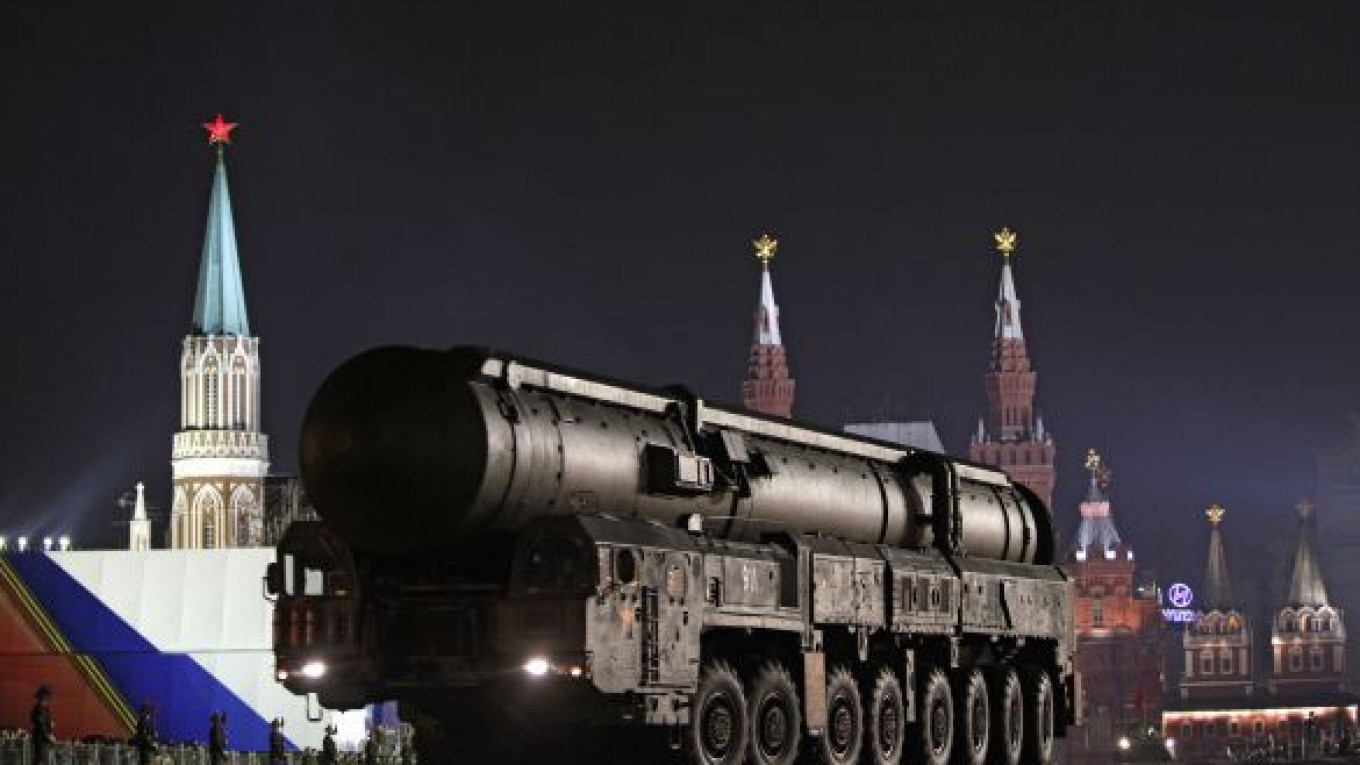WASHINGTON — The Obama administration is leaving open the possibility of giving Moscow certain secret data on U.S. interceptor missiles due to help protect Europe from any Iranian missile strike.
A deal is being sought by Washington that could include classified data exchange because it is in the United States' interest to enlist Russia and its radar stations in the missile defense effort, a Pentagon spokeswoman said.
No decision has been made yet on whether the United States would offer data about the interceptors' "velocity at burnout," or VBO, said Air Force Lieutenant Colonel April Cunningham, the spokeswoman, but it is not being ruled out.
VBO is at the heart of what Russia wants as the price for its cooperation, said Riki Ellison, head of the private Missile Defense Advocacy Alliance, who has close ties to missile defense and military officials.
VBO tells how fast an interceptor is going when its rocket-booster motor fuel is spent and the motor burns out.
With VBO and certain other technical data, Moscow could more readily develop countermeasures and strategies to defeat the system and transfer the information to others, Ellison said.
Ellen Tauscher, the administration's special envoy for strategic stability and missile defense, held talks in Moscow on Tuesday with Russian Deputy Foreign Minister Sergei Ryabkov, including on missile defense, a State Department spokesman said.
The Defense Department ruled out giving Russia information on either "telemetry" or U.S. "hit-to-kill" technology.
Telemetry involves the automatic transmission and measurement of data from remote sources to monitor a missile flight. Hit-to-kill is the way in which modern U.S. interceptors, such as Raytheon Co's Standard Missile-3, destroy targets by slamming into them.
The department emphasized that the Obama administration was following in the footsteps of the George W. Bush administration in seeking missile defense cooperation with Moscow, a process formally begun in 2004.
In keeping open the possibility of sharing VBO information with Moscow, Obama is at odds with Republicans in Congress who have said they will seek to legislate a prohibition on such data-sharing.
Republican Representative Mike Turner, chairman of the House of Representatives' armed services subcommittee on strategic forces, faulted the administration for what he described as "caving" in to Russian concerns at the expense of U.S. interests.
"That is why it is important that Congress insist on protecting our classified missile defense information and our right to deploy missile defenses without concern for Russia's posturing," he said in a statement.
The sharing of such data might help salve Russian concerns about the layered shield being built in Europe by the United States and its NATO allies, chiefly to fend off the perceived threat from Iranian missiles.
Moscow fears the bulwark could grow strong enough over time to undermine its nuclear deterrent force. It has threatened to deploy missiles to overcome the shield and potentially target missile defense installations such as those planned in NATO members Poland and Romania.
The Defense Department said the sharing of classified U.S. data is subject to an interagency group known as the National Disclosure Policy Committee, which evaluates requests for dealing with other governments.
Bradley Roberts, a deputy assistant secretary of defense, told Turner's committee last week that the United States had been making "no progress" toward persuading Russia to drop its opposition to the shield despite its willingness to consider sharing certain classified data.
A Message from The Moscow Times:
Dear readers,
We are facing unprecedented challenges. Russia's Prosecutor General's Office has designated The Moscow Times as an "undesirable" organization, criminalizing our work and putting our staff at risk of prosecution. This follows our earlier unjust labeling as a "foreign agent."
These actions are direct attempts to silence independent journalism in Russia. The authorities claim our work "discredits the decisions of the Russian leadership." We see things differently: we strive to provide accurate, unbiased reporting on Russia.
We, the journalists of The Moscow Times, refuse to be silenced. But to continue our work, we need your help.
Your support, no matter how small, makes a world of difference. If you can, please support us monthly starting from just $2. It's quick to set up, and every contribution makes a significant impact.
By supporting The Moscow Times, you're defending open, independent journalism in the face of repression. Thank you for standing with us.
Remind me later.






